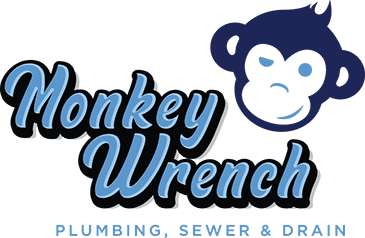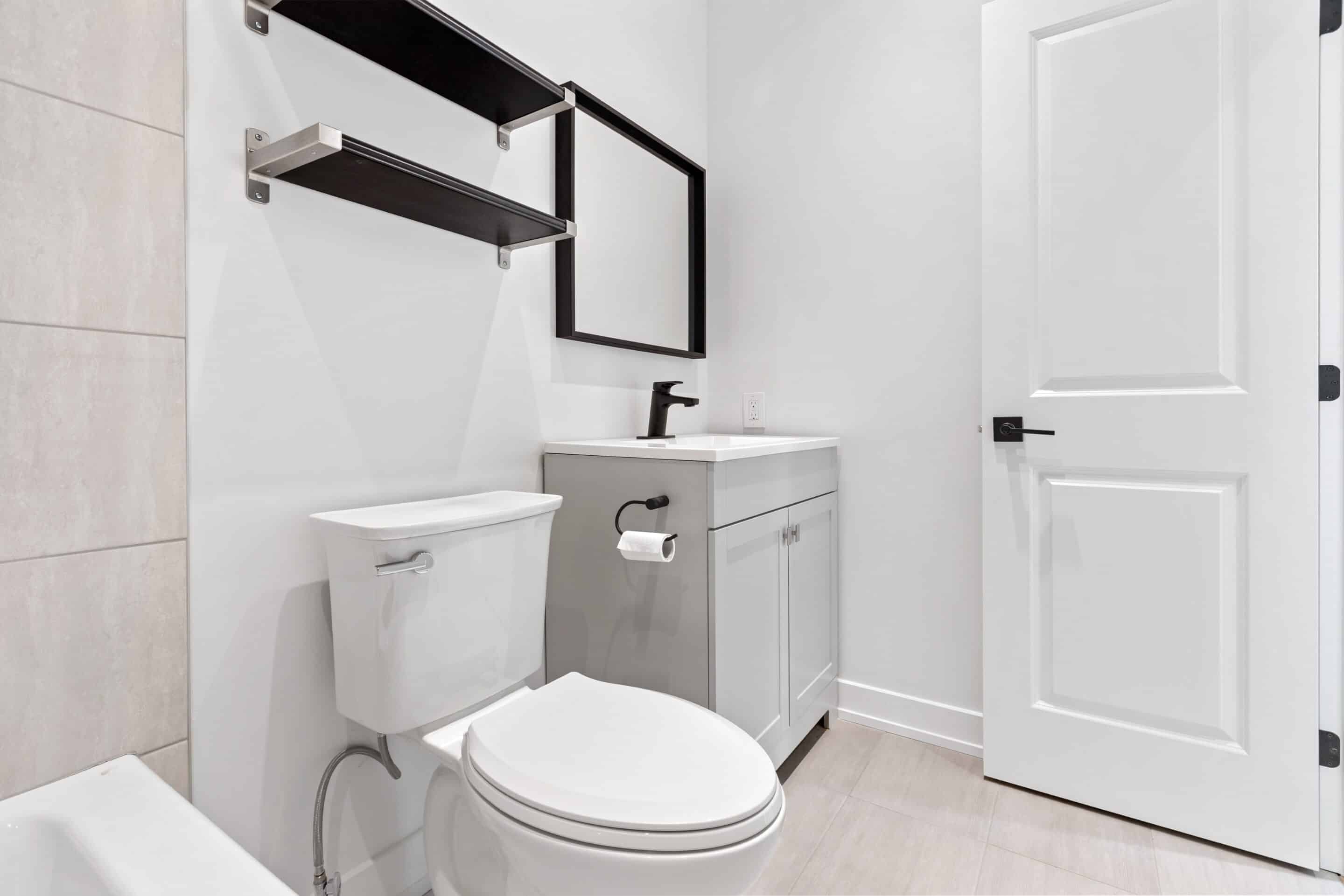If you live in an area with hard water, you may be dealing with more than just annoying soap scum and mineral buildup. Hard water can actually be a hidden danger that can cause serious damage to your home’s plumbing system and appliances. At Monkey Wrench Plumbing, we specialize in water purification in Utah and we’ve seen the devastating effects of hard water firsthand. In this blog post, we’ll explain what hard water is, how it can wreak havoc on your home, and why installing a water purification system is the best way to protect your investment.
Understanding hard water and its impact on your home
Understanding hard water and its impact on your home is essential for safeguarding your investment. Hard water contains high levels of minerals such as calcium and magnesium that can wreak havoc on your plumbing system and appliances. When hard water flows through pipes, a process called scaling occurs, leaving behind a mineral buildup that can clog pipes and reduce water flow. Over time, this buildup can cause irreparable damage, leading to costly repairs and replacements. Additionally, hard water can create a film of soap scum on surfaces, dulling the appearance of fixtures and making them harder to clean. By installing a water purification system from Monkey Wrench Plumbing, you can effectively remove these minerals and protect your home from the hidden dangers of hard water.
The risks of hard water on plumbing systems
One of the biggest risks of hard water is its impact on plumbing systems. As mentioned earlier, the high mineral content in hard water can cause scaling, which leads to a buildup of minerals inside the pipes. Over time, this buildup can clog the pipes and reduce water flow.
This can result in several issues. Firstly, reduced water flow can make it more difficult to perform everyday tasks such as showering or washing dishes. Secondly, clogged pipes can lead to pressure buildup, increasing the risk of pipe bursts and leaks. The cost of repairing these damages can be substantial, not to mention the inconvenience and disruption it causes.
To avoid these risks, it is important to address the issue of hard water in your home. Installing a water purification system can help remove the minerals responsible for scaling, preserving the lifespan of your plumbing system and preventing costly repairs.
Stay tuned for the next section where we will discuss the impact of hard water on household appliances.
Hard water’s effect on appliances and fixtures
Hard water doesn’t just wreak havoc on your plumbing system; it can also cause significant damage to your household appliances and fixtures. The minerals in hard water, such as calcium and magnesium, can accumulate in appliances like dishwashers, washing machines, and coffee makers. This buildup can lead to reduced efficiency and shorter lifespans for these appliances.
Additionally, hard water can leave behind mineral deposits on fixtures like faucets and showerheads, causing them to become clogged and less effective over time. These deposits can also leave unsightly stains on sinks, toilets, and bathtubs.
Not only does this damage require costly repairs or replacements, but it can also lead to higher energy bills due to the appliances working harder to compensate for the mineral buildup. That’s why it’s essential to address the issue of hard water in your home to protect your appliances and fixtures.
In the next section, we will explore the potential health risks associated with hard water and how it can affect your skin and hair.
The damaging effects of hard water on your skin and hair
While the damage caused by hard water to your appliances and fixtures is already concerning, it doesn’t stop there. Hard water can also take a toll on your skin and hair, causing a range of issues that can be both uncomfortable and unsightly.
One of the most noticeable effects of hard water on your skin is dryness. The high mineral content can strip away the natural oils on your skin, leaving it feeling tight, itchy, and prone to irritation. This can be especially problematic for individuals with sensitive skin or conditions like eczema or psoriasis.
In addition to dryness, hard water can also exacerbate existing skin conditions or even lead to new ones. The mineral buildup can clog your pores, leading to breakouts and acne. It can also worsen conditions like dermatitis or rosacea, causing redness, inflammation, and increased sensitivity.
Similarly, hard water can have a detrimental impact on your hair. The minerals in the water can create a buildup on your scalp and hair strands, leaving them looking dull, lifeless, and prone to tangling. This buildup can also weigh down your hair, making it harder to style and manage.
Furthermore, if you color your hair, hard water can cause your hair color to fade more quickly. The mineral deposits can strip away the color molecules, leaving your hair looking washed out and lackluster.
To combat the damaging effects of hard water on your skin and hair, it’s important to take preventative measures. Using gentle, hydrating cleansers and moisturizers can help replenish the moisture lost from your skin. Additionally, installing a water softener or using a water filter can remove the minerals and contaminants from your water, reducing the damaging effects on your skin and hair.
In the final section of this series, we will delve into the various solutions and treatments available to address the issue of hard water in your home and safeguard your health, appliances, and fixtures. Stay tuned!
Hard water’s impact on household cleaning
In addition to its effects on your skin and hair, hard water can also wreak havoc on your household cleaning routine. The high mineral content in hard water can interfere with the effectiveness of soaps, detergents, and cleaning products, making it more difficult to achieve a sparkling clean home.
When hard water mixes with soap or detergent, it forms soap scum. This sticky residue can build up on surfaces like bathtubs, showers, and sinks, leaving behind unattractive stains that are difficult to remove. Soap scum can also make your tiles and fixtures appear dull and worn over time.
Furthermore, hard water can leave behind limescale deposits on your plumbing fixtures and appliances. These deposits, consisting of calcium and magnesium, can clog up your pipes and reduce water flow. Limescale buildup can also damage your appliances, such as your dishwasher and washing machine, leading to decreased efficiency and potential breakdowns.
To combat the effects of hard water on household cleaning, it’s essential to use cleaning products that are specifically designed for hard water. These products are formulated to break down soap scum and dissolve limescale deposits, making your cleaning tasks more effective and efficient.
In the next and final section, we will explore the different methods and products available to tackle the challenges posed by hard water when it comes to household cleaning. Stay tuned to learn how you can restore the sparkle and shine to your home!
Solutions to combat the dangers of hard water
Now that we understand the negative effects of hard water on our homes, it’s time to explore solutions to combat these dangers. There are several effective methods and products available that can make a significant difference in maintaining a clean and functional household.
One popular solution is the use of water softeners. These devices work by removing the mineral content from the water, preventing the formation of soap scum and limescale deposits. Water softeners can be installed at the point of entry to treat all the water entering your home or at specific points, such as under sinks or in the laundry room.
Another option is the use of descaling agents or water conditioners. These products help to dissolve existing limescale deposits and prevent further buildup. Regularly applying descaling agents to your appliances and fixtures can significantly extend their lifespan and improve their performance.
Additionally, using cleaning products specifically designed for hard water can make a world of difference. These products are formulated with ingredients that are effective in breaking down soap scum and removing mineral deposits. Look for products that are labeled as “hard water detergents” or “limescale removers” for the best results.
Finally, regular maintenance is crucial in preventing the damage caused by hard water. Cleaning and descaling your appliances, regularly scrubbing away soap scum, and checking for any signs of limescale buildup are essential habits to maintain a beautiful and functional home.
By implementing these solutions and adopting a proactive approach, you can effectively combat the hidden dangers of hard water. In the final section, we will provide some additional tips and precautions to ensure your home remains protected. Stay tuned for the concluding part of this blog!
Protecting your home from the hidden dangers of hard water
By following these guidelines, you’ll be able to minimize the negative effects of hard water and keep your home in top condition. Stay tuned for the concluding part of this blog to learn how to protect your home from the hidden dangers of hard water.


